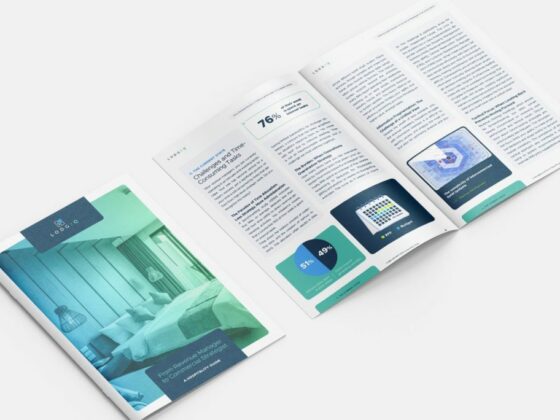
Can you share some of your personal background/history that led to your career in hotel revenue management?
I have more than 15 years of experience in commercial services and revenue management. Before joining Remington Hospitality in October 2024, I served as Senior Vice President of Revenue Management for a private equity firm. Throughout my career, I have held roles at Magna Hospitality Group, where I led revenue strategies across a diverse portfolio, and Marriott International, where I gained foundational experience in development planning and feasibility. Additionally, I’ve served as an adjunct professor at New York University, teaching e-commerce and revenue management strategies. I earned my Bachelor of Science in Hospitality and Tourism Management at Purdue University.
How are forecasting efficiencies and algorithmic tools helping to streamline revenue strategies, and what impact have they had on profitability?
Forecasting efficiencies and algorithmic tools are helping streamline revenue strategies by making processes faster and more accurate. For example, the use of algorithms that help reduce market segments and improve forecast precision allows for better demand prediction. This leads to optimized pricing and occupancy, directly impacting profitability. By leveraging machine learning and algorithms, hoteliers can make data-driven decisions that maximize revenue in various market conditions.
With automation playing a larger role in revenue management, how do you ensure that technology enhances, rather than replaces, human decision-making?
While automation and machine learning are integral to improving revenue management efficiency, the team remains key to interpreting data and making strategic decisions based on broader market context. This is why a diverse team and ongoing training are crucial to ensuring that emerging technology enhances rather than replaces human decision-making.
In fast-moving markets, how do you leverage machine learning and statistical tools to quickly adapt revenue strategies to shifting demand?
Machine learning and statistical tools provide real-time insights, allowing hoteliers to adjust pricing and occupancy strategies faster and more efficiently. Advanced algorithms can analyze vast datasets, including competitor pricing, local events, and economic indicators, to detect shifts in demand early. By forecasting demand fluctuations, machine learning helps identify opportunities for optimization, even in fast-moving markets.
You mentioned reducing segmentation complexity—can you share an example of how technology is simplifying pricing and segmentation decisions?
Technology simplifies pricing and segmentation decisions by leveraging data-driven tools that analyze customer behavior, market trends, and demand patterns. This, in turn, helps automate pricing decisions, adjusting rates in real time based on current factors. They also assist in identifying and targeting different customer segments more effectively. This reduces the complexity of managing pricing across multiple groups.
Looking ahead, what emerging trends or innovations do you see shaping the next evolution of revenue management in hospitality?
The revenue management landscape is shifting, with an increasing overlap between revenue optimization and other commercial functions like digital marketing and sales, ultimately creating a more seamless connection between pricing, distribution, and customer engagement.
Additionally, sales lead optimization through online platforms is becoming increasingly popular, with advanced data analytics and automation tools enabling more targeted and efficient strategies across diverse touchpoints. This will lead to more data-driven decision-making.
How has your approach to revenue management evolved, and what key lessons have shaped your leadership philosophy?
Prioritizing operational resilience and establishing efficiencies within the revenue management department is critical, especially given current staffing challenges. My approach is focused on stabilizing the team, recognizing the importance of collaboration, continuous learning, and empowering teams through training and development to equip them with the skills they need to stay ahead in an increasingly data-driven industry.
Any advice for other revenue management leaders who may be new to their role or this industry?
First and foremost, stay curious. Revenue Management isn’t just about numbers – it’s about storytelling, strategy, and constantly evolving your perspective based on the data in front of you. Don’t be afraid to ask questions, challenge assumptions, and dig deeper.
Also, build strong relationships across all departments. Your greatest success will come when you’re aligned with Sales, Marketing, Operations, and Ownership. Collaboration isn’t optional–it’s essential.
And lastly, don’t underestimate the importance of humility. Even with experience, we’re all students of this business. The best leaders I’ve seen (and worked with) are the ones who listen as much as they speak, lead by example, and never stop learning.






